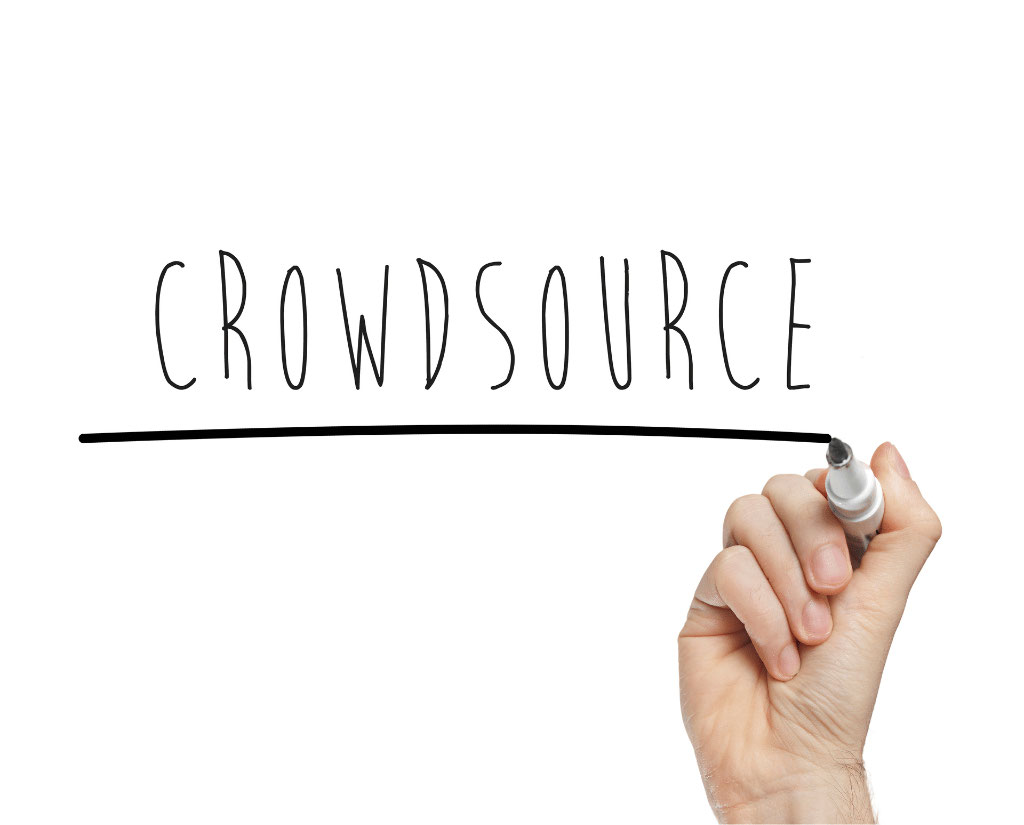
Crowdsourcing can take many forms, each with its own unique benefits and challenges.
We’re going to explore 10 different types of crowdsourcing that businesses can use to leverage the power of the crowd, from ideation and problem-solving to funding and content creation.
We provide real-world examples of how businesses have successfully leveraged each type of crowdsourcing, along with the benefits and limitations of each approach. By understanding the various types of crowdsourcing available, businesses can choose the most suitable method to drive innovation, reduce costs, and engage customers.
1. Idea Crowdsourcing
This type of crowdsourcing involves soliciting ideas from a crowd of people, often to solve a specific problem or challenge. Examples of companies that use idea crowdsourcing include Dell's IdeaStorm, which allows customers to suggest and vote on new product ideas, and LEGO Ideas, where fans can submit their own ideas for new LEGO sets.

2. Microtask Crowdsourcing
Microtask crowdsourcing involves breaking down larger tasks into smaller, more manageable microtasks and distributing them to a crowd of workers. Companies that use microtask crowdsourcing include Amazon Mechanical Turk, which offers a platform for workers to complete small tasks in exchange for payment, and Figure Eight, which provides a platform for businesses to crowdsource tasks like data labeling and image annotation.
3. Crowdfunding
Crowdfunding involves raising funds for a project or venture by soliciting small contributions from a large number of people, typically via the internet. Examples of crowdfunding platforms include Kickstarter, Indiegogo, and GoFundMe.
4. Design Crowdsourcing
Design crowdsourcing involves soliciting design ideas or solutions from a crowd of designers. Companies that use design crowdsourcing include 99designs, which allows businesses to crowdsource design projects like logos and websites, and Designhill, which provides a platform for businesses to crowdsource graphic design work.
5. Contest Crowdsourcing
Contest crowdsourcing (also known as prize incentive challenges) involves running a competition to solicit ideas or solutions from a crowd of participants. Companies that use contest crowdsourcing include NASA, which runs a variety of crowdsourcing contests on open innovation crowdsourcing platforms such as HeroX, to gather innovative ideas for space exploration, and Unilever, which runs the Unilever Foundry IDEAS platform to crowdsource ideas from startups and entrepreneurs.
6. Crowdsourced Testing
Crowdsourced testing involves enlisting a crowd of people to test a product or service and provide feedback on its functionality, usability, and other features. Companies that use crowdsourced testing include UserTesting, which provides a platform for businesses to gather user feedback on their products and services, and Applause, which offers a crowdsourced testing platform for mobile apps and websites.
7. Knowledge Crowdsourcing
Knowledge crowdsourcing involves tapping into the collective knowledge and expertise of a crowd of people. Companies that use knowledge crowdsourcing include Quora, which provides a platform for users to ask and answer questions on a wide range of topics, and InnoCentive, which allows businesses to crowdsource solutions to scientific and technical challenges.
8. Social Media Crowdsourcing
Social media crowdsourcing involves leveraging social media platforms to solicit ideas or feedback from a large audience. Companies that use social media crowdsourcing include Coca-Cola, which crowdsourced a new flavor of soda via Twitter, and Lay's, which ran a crowdsourced flavor contest on Facebook.
9. Data Crowdsourcing
Data crowdsourcing involves enlisting a crowd of people to collect, verify, or analyze data. Companies that use data crowdsourcing include CrowdFlower, which provides a platform for businesses to crowdsource data labeling and verification tasks, and StreetCred, which allows users to contribute data on local businesses and points of interest.
10. Volunteer Crowdsourcing
Volunteer crowdsourcing involves enlisting a crowd of volunteers to contribute their time and skills to a project or cause. Examples of volunteer crowdsourcing platforms include VolunteerMatch, which connects volunteers with local organizations in need of help, and Idealist, which provides a platform for people to find volunteer opportunities and connect with like-minded individuals.
Crowdsourcing has emerged as a powerful tool for businesses to access a diverse range of skills and expertise from a global community of problem-solvers. By using different types of crowdsourcing, businesses can drive innovation, reduce costs, and engage customers in a more meaningful way. Whether you are a startup or an established company, crowdsourcing can help you tap into the collective intelligence of the crowd to solve your most pressing challenges and achieve business success.
If you're interested in exploring the power of crowdsourcing for your business, don't hesitate to contact HeroX today. As one of the top crowdsourcing platforms in the market, we offer a range of customized solutions to help you leverage the collective intelligence of the crowd and achieve your business goals. Contact us today to learn more about how we can help your business thrive through the power of crowdsourcing.









